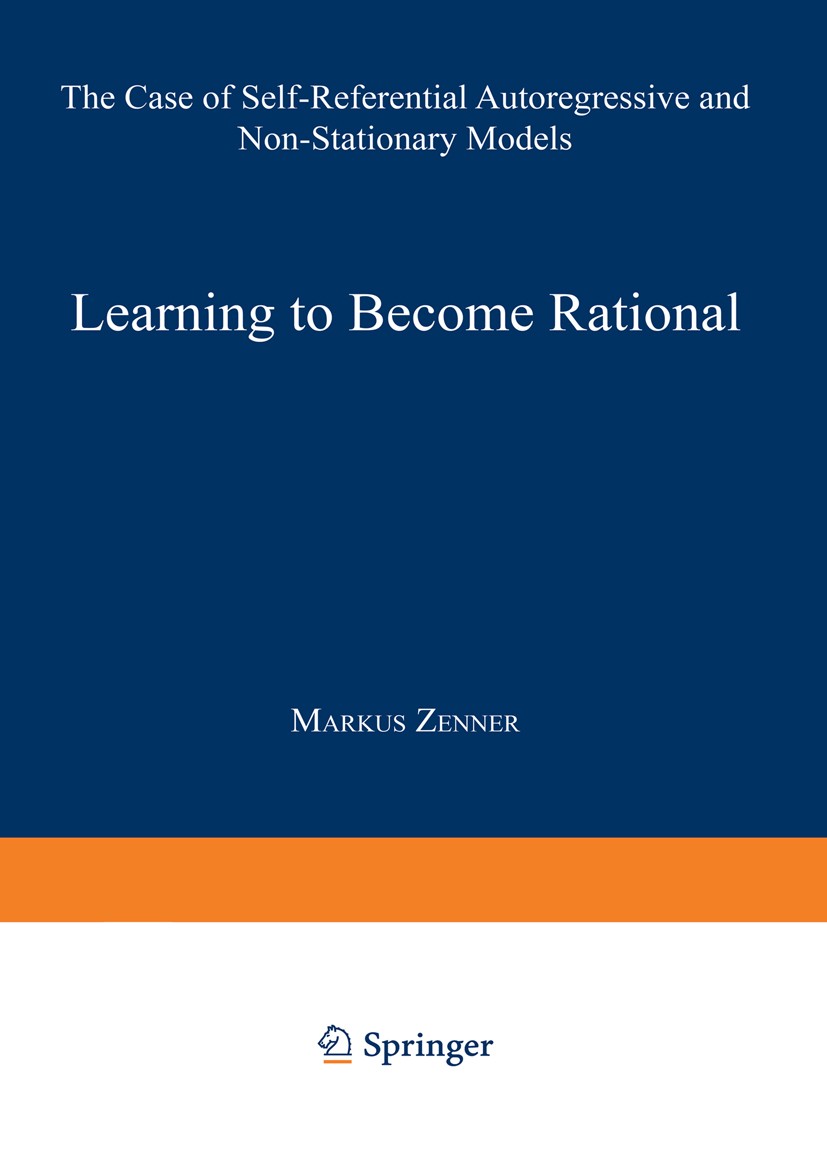| 书目名称 | Learning to Become Rational | | 副标题 | The Case of Self-Ref | | 编辑 | Markus Zenner | | 视频video | http://file.papertrans.cn/583/582989/582989.mp4 | | 丛书名称 | Lecture Notes in Economics and Mathematical Systems | | 图书封面 |  | | 描述 | 1. 1 Rational Expectations and Learning to Become Rational A characteristic feature of dynamic economic models is that, if future states of the economy are uncertain, the expectations of agents mat ter. Producers have to decide today which amount of a good they will produce not knowing what demand will be tomorrow. Consumers have to decide what they spend for consumption today not knowing what prices will prevail tomorrow. Adopting the neo-classical point of view that economic agents are ‘rational‘ in the sense that they behave in their own best interest given their expectations about future states of the ecomomy it is usually assumed that agents are Bayesian deci sion makers. But, as LUCAS points out, there remains an element of indeterminacy: Unfortunately, the general hypothesis that economic agents are Bayesian decision makers has, in many applications, lit tle empirical content: without some way of infering what an agent‘s subjective view of the future is, this hypothesis is of no help in understanding his behavior. Even psychotic behavior can be (and today, is) understood as "rational", given a sufficiently abnormal view of relevant probabili ties. To practice economics, | | 出版日期 | Book 1996 | | 关键词 | Stochastische Modelle; Theorie der rationalen Erwartungen; bounded rationality; eingeschränkte Rational | | 版次 | 1 | | doi | https://doi.org/10.1007/978-3-642-51876-8 | | isbn_softcover | 978-3-540-61279-7 | | isbn_ebook | 978-3-642-51876-8Series ISSN 0075-8442 Series E-ISSN 2196-9957 | | issn_series | 0075-8442 | | copyright | Springer-Verlag Berlin Heidelberg 1996 |
The information of publication is updating

|
|
 |Archiver|手机版|小黑屋|
派博传思国际
( 京公网安备110108008328)
GMT+8, 2026-2-9 21:09
|Archiver|手机版|小黑屋|
派博传思国际
( 京公网安备110108008328)
GMT+8, 2026-2-9 21:09


